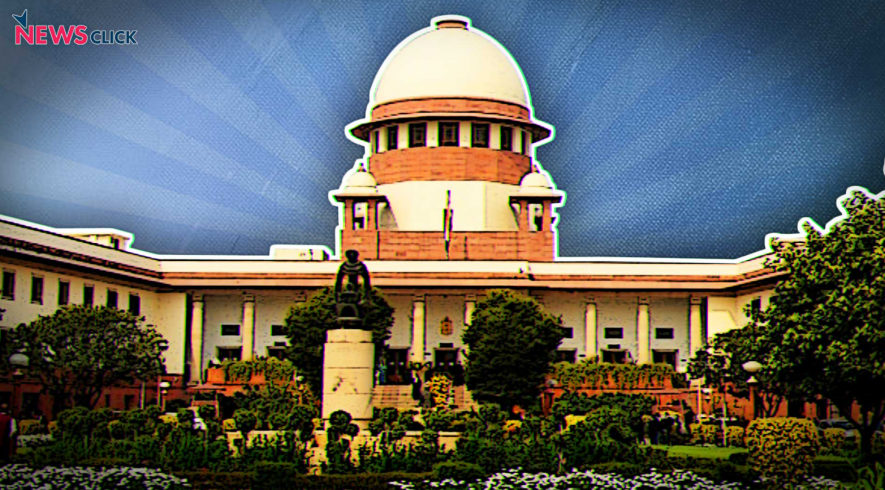The Year That Was – 3: Sec 6A, an Inclusive Interpretation by SC

The Supreme Court’s Constitution Bench judgment pronounced on October 17, 2024 in the challenge to Section 6A of the Citizenship Act, 1955, saw a fierce battle of ideas with the proponents and opponents of the provision both relying on varying, and often opposing, interpretations to the constitutional provisions in support of their respective arguments.
While the arguments sought interpretation of various constitutional provisions from the right to preservation of culture as enshrined in Article 29 to the right to equality under Article 14, one of the key contentons raised by both parties, revolved around the interpretation of the preambular promise of fraternity.
The petitioners, or the opponents of the 1985 amendment— deeming persons of Indian origin who entered from the then East Pakistan before March 25, 1971 to Assam as citizens of India— relied on the idea of fraternity relating it to the unity and integrity of the nation which, as per the petitioners, suffered by permitting a demographic change due to influx of pre-1971 migrants.
The judgment, noting that there are no inherent limitations to fraternity, terms it as a counterbalance to individualism.
The proponents and supporters of Section 6A sought a broader, more inclusive interpretation of fraternity, arguing that fraternity meant mutual regard amongst individuals in order to prevent society from being reduced to an ‘us’ versus ‘them’ binary.
Justice Surya Kant’s majority opinion, in a neat eleven-page analysis, traces the idea of fraternity to its absence in the Objectives Resolution of Pandit Jawaharlal Nehru and its subsequent inclusion in the Preamble by Dr B.R. Ambedkar, who defined it as a sense of common brotherhood.
The judgment, noting that there are no inherent limitations to fraternity, terms it as a counterbalance to individualism. In doing so, the court also remained conscious of the fact that fraternity, as emerging from the French Revolution call of Liberté, Égalité and Fraternité, had meant for the French a commitment towards collective well-being of citizens and a common bond for unification which later was eclipsed by equality and a heightened emphasis on individual rights.
However, the majority view holds that in the Indian context, the approach since the beginning had been such that fraternity was interwoven and interconnected with the constitutional goals of social cohesion and upliftment. The Bench, therefore, rejected the reliance placed by the petitioners on the concept of fraternity while opposing the grant of citizenship to persons of Indian origin having come from East Pakistan till it emerged in Bangladesh and Bangladeshi citizenship commencing only from March 25, 1971.
It held that it would be antithetical to deploy the inclusive constitutional value of fraternity to exclude large swathes of persons who had been already conferred citizenship.
It ultimately found Section 6A to be furthering the cause of fraternity rather than being opposed to it. The most appropriate description of this ideological debate on the concept of fraternity is perhaps described in Para 117 of the judgment where the court notes that the petitioners wanted fraternity to be interpreted in a highly restrictive manner “which allows them to choose their neighbours”.
Fraternity meant that “we are all sons of the same God, as the religious would say, but as the mystic would say, that there is one life pulsating through us all, or as the Bible says, we are one of another”.
Rejecting this approach, the court sided with the interpretation which requires people of different backgrounds and social circumstances to “live and let live”.
With this interpretation of fraternity permitting us to live and let live, one is reminded of another advice given in the halls of the Constituent Assembly on October 17, 1949— coincidentally the same date on the 75th anniversary of which the majority judgment in the petitions challenging Section 6A would come to be pronounced.
Constituent Assembly member Jiwatram Bhagwandas Kripalani or— as he was popularly known— Acharya Kripalani had the occasion to speak on the Preamble during the second reading of the Draft Constitution. Referring to the “great doctrine of fraternity”, Acharya Kripalani had termed it to be “allied with democracy”.
In his words, fraternity meant that “we are all sons of the same God, as the religious would say, but as the mystic would say, that there is one life pulsating through us all, or as the Bible says, we are one of another”.
However, after stating that there could be no fraternity without this, Acharya Kripalani reminded the House of an integral understanding required for the preambular virtues by stating the following:
“I want this House to remember that what we have enunciated are not merely legal, constitutional and formal principles, but moral principles; and moral principles have got to be lived in life.
“They have to be lived whether it is private life or it is public life, whether it is commercial life, political life or the life of an administrator. They have to be lived throughout. These things, we have to remember if our Constitution is to succeed.”
It is this understanding of living the moral principles of the Preamble which, in this author’s opinion, is the essence of the Court’s majority view in the Section 6A challenge and would be the bedrock for further jurisprudence on the interpretation of preambular virtues in the future. The vital question, however, that we must pose each day not only to ourselves but as individuals, lawyers, judges, politicians and thinkers alike is that while framers of our Constitution, and the Supreme Court, have given us the way forward for living the preambular morals, including fraternity, have we been living it in the same spirit.
Ibad Mushtaq is an advocate practising in the Supreme Court and Delhi High Court.
Get the latest reports & analysis with people's perspective on Protests, movements & deep analytical videos, discussions of the current affairs in your Telegram app. Subscribe to NewsClick's Telegram channel & get Real-Time updates on stories, as they get published on our website.
























